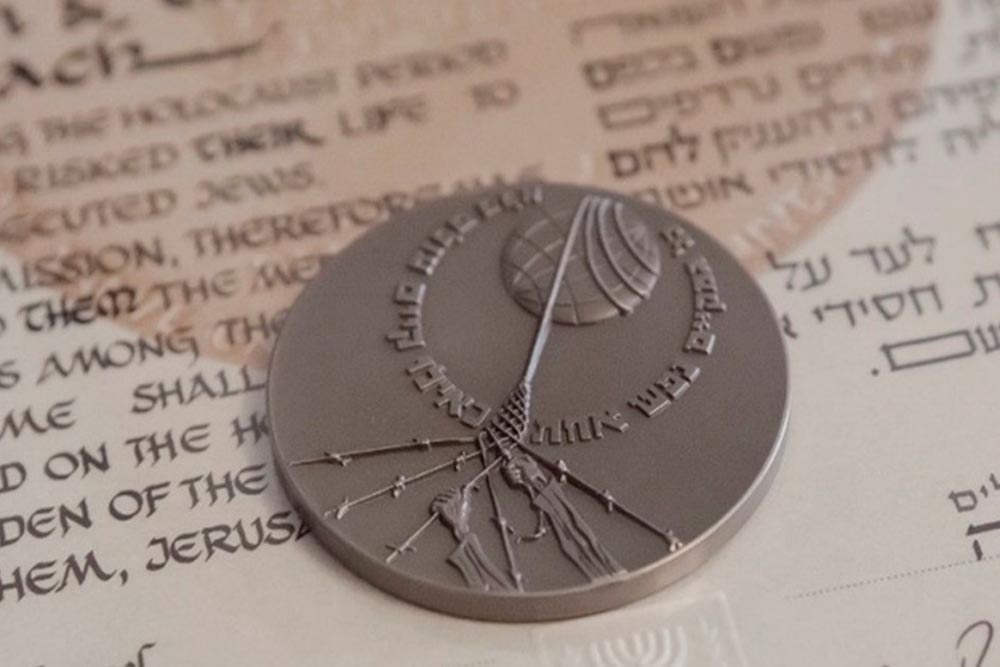Bank of Portraits / Diachuk Odarka

Diachuk Odarka
Odarka Diachuk lived in the village of Vakhnivka in Vinnytsia region. She herself raised three daughters – Anna, Mariia and Kateryna. Her husband Stepan died during the Soviet-Finnish war. The Jewish Maliar family lived next door to the Dyachuk family. The Jews had a small mill – “cereals crusher”. Both local residents and people from the surrounding villages used their services to grind buckwheat, wheat, etc. In the summer of 1941, when the Nazis occupied the area, the Jewish family tried to evacuate, but outside the village, the wagons with the refugees were stopped by the Germans and ordered to return. For several weeks, life in the village was relatively calm. When the raids began, Aron and Haia with their children Polina, Vira, Roza and Leonid were hiding in their neighbors' cellars. Later, five-year-old Raia – Aronov's niece from Vinnytsia was brought to them, who miraculously survived the next “Jewish action”. Her parents were shot.
Hiding seven people became even more difficult. However, Odarka Diachuk dared to take this step. She remembered Aron's generosity when her late husband worked at his mill. The woman equipped a hiding place for the Maliar family in an old barn, where there was a lot of hay. It was possible to get to the shelter only through a gap of straw. The Jews spent about a year there. In the winter of 1942, their eldest daughter, 19-year-old Polina, fell seriously ill. It was not possible to save the girl without a doctor. She was quietly buried just in the Odarka’s yard. To help Odarka support his family, Aron began working in the evenings with local peasants for food. However, the police tracked him down and took him to the village of Lypovets, where he was shot.
No longer able to support the whole family, Odarka began to look for reliable people who would agree to help the Jews. The youngest, Raia Maliar, was sheltered by the childless Dmytruk family, 14-year-old Roza was taken as a domestic worker by wealthy peasants, 11-year-old Leonid was hired as a shepherd in a neighboring village, and Haia and her youngest daughter Vira stayed with the Diachuk family. All family members survived and were happily reunited after the expulsion of the Nazis from Vinnytsia.
After the war, Haia and her children moved to Vinnytsia. For some time, they communicated closely with the family of their saviors, visited them in the village. Then the connection was lost. Only in 2007, Odarka Diachuk's grandson looked for Leonid and Roza Maliar in Israel.
In 2008, Yad Vashem recognized Odarka Diachuk as the Righteous Among the Nations.
Svitlana Datsenko
Kyiv
National museum of the History of Ukraine in the Second World War
-
fingerprintArtefacts
-
theatersVideo
-
subjectLibrary
